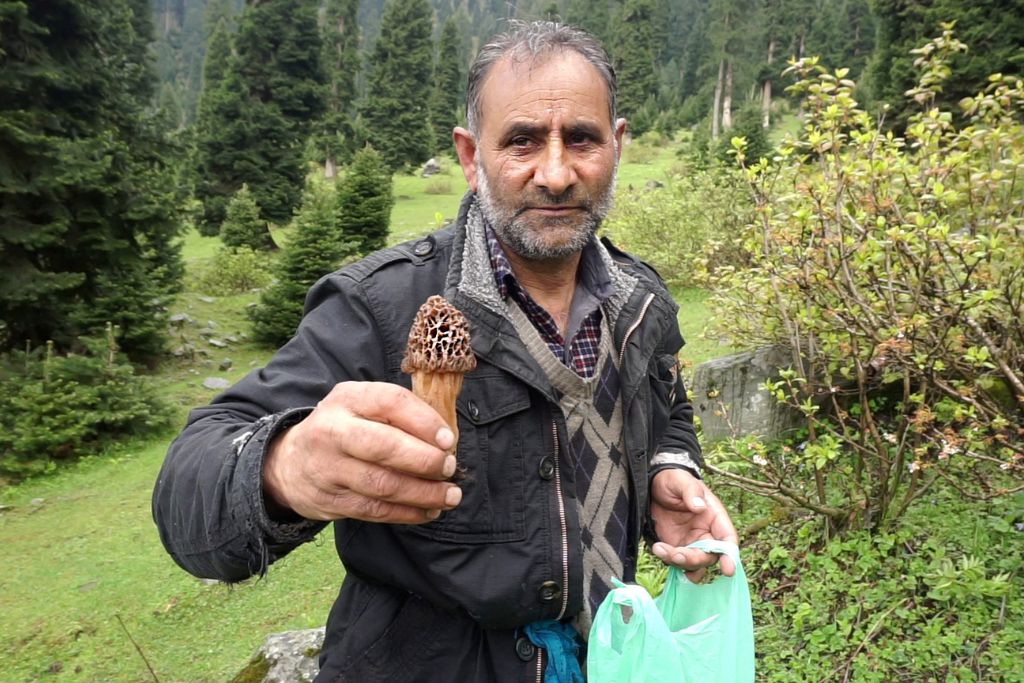
This is why gucchi mushrooms are the world’s priciest
Morel mushrooms, also known as gucchi, may be the globe’s most expensive mushroom, but now climate change is impacting its availability. Village Square does a visual essay on what goes into sourcing the prized delicacy.
This is a morel mushroom, locally known as kanegeich in Kashmir or gucchi mushrooms worldwide. Found at high altitudes across India’s hill tracts in Jammu and Kashmir, Himachal Pradesh and Uttarakhand, the highly prized delicacy is said to be the world’s costliest mushroom. It sells between Rs 10,000 and Rs 30,000 a kg.
Also Read: Anita Devi of Anantpur works magic with mushrooms
The prime seasons for morel harvesting are March and April or July and August. Known as gucchi mushrooms globally, they belong to the Morchella family and flourish in the diverse habitat of the Himalayas, including coniferous and deciduous forests, and alpine pastures.
Two men search for gucchi mushrooms under small trees, carrying bags to gather their findings. This meticulous hunt is a crucial activity during the harvest season. Villagers from regions like Kangan, Anantnag and Kupwara engage in this activity in Kashmir.
A man proudly holds two morels with a smile. Each season, large numbers of people across Kashmir set out to collect these valuable gucchi mushrooms. Their scarcity and short growing season push up their price.
After gucchi mushrooms are collected, they are laid on a cloth to segregate the small and large morels. This sorting process is essential for their market preparation. The dried morels are exported, with Himachal Pradesh leading the trade followed by Jammu and Kashmir.
Also Read: How Mushroom cultivation has becomes lifeline in Bengal
These morel mushrooms boast numerous health benefits and are sold both within India and internationally. They are even available on online platforms.
Ali Mohammad Sheikh and his son leave early in the morning for gucchi mushrooms hunting. In this picture, they are deep in the forest, sorting their harvest. The livelihood of such mushroom collectors is now impacted by the adverse effects of climate change. Unpredictable weather patterns, early springs, and unusually high temperatures have significantly affected morel yields.
Also Read: Impact of climate change on Kashmir’s mushroom pickers
Upon returning home, Sheikh and his son clean the mud off the morels and prepare them for drying. Cleaning and drying are crucial steps before selling gucchi mushrooms. For the second consecutive year, the morel yield has been low, causing distress among the hunters who depend on this natural bounty.
Sheikh places the dried morels on a plate, ready for sale. Exceptional specimens of the dried morels can fetch up to Rs 40,000 per kg after cleaning and drying.
The lead image on top shows Ali Mohammad Sheikh, from Doodhpathri, Kashmir, who has been collecting morels for 20 years. Here, he displays a morel, his primary source of income.
Text and photos by Suhail Bhat, a Village Square Fellow 2023-24. He works as a multimedia journalist in Jammu and Kashmir.








